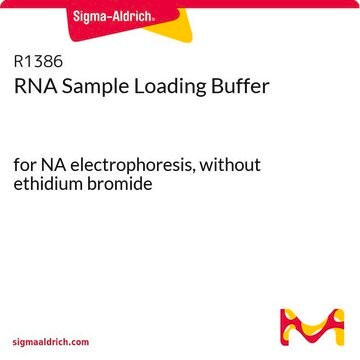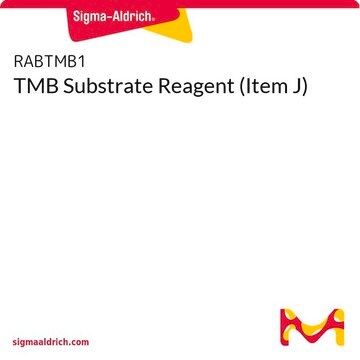S5814
Stop Reagent for TMB Substrate
chromogenic, powder
Sinónimos:
TMB liquid substrate system stop reagent
About This Item
Productos recomendados
product name
Stop Reagent for TMB Substrate, powder, ELISA, 450 nm
form
powder
storage temp.
room temp
General description
Application
- for in vitro preparation and analysis of neutrophil extracellular traps (NETs)
- for direct binding enzyme linked immune sorbent assay (ELISA)
- for interference assay
signalword
Danger
Hazard Classifications
Acute Tox. 4 Dermal - Acute Tox. 4 Oral - Eye Dam. 1 - Skin Corr. 1 - Skin Sens. 1 - STOT SE 3
target_organs
Respiratory system
Storage Class
8A - Combustible corrosive hazardous materials
wgk_germany
WGK 3
flash_point_f
260.6 °F - closed cup
flash_point_c
127 °C - closed cup
Certificados de análisis (COA)
Busque Certificados de análisis (COA) introduciendo el número de lote del producto. Los números de lote se encuentran en la etiqueta del producto después de las palabras «Lot» o «Batch»
¿Ya tiene este producto?
Encuentre la documentación para los productos que ha comprado recientemente en la Biblioteca de documentos.
Los clientes también vieron
Nuestro equipo de científicos tiene experiencia en todas las áreas de investigación: Ciencias de la vida, Ciencia de los materiales, Síntesis química, Cromatografía, Analítica y muchas otras.
Póngase en contacto con el Servicio técnico











